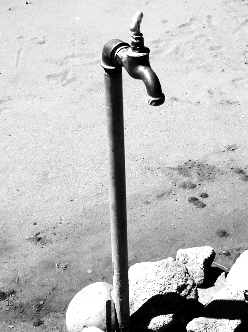Adelaide groundwater assessed
 Adelaide’s groundwater supplies might be much more limited than previously believed.
Adelaide’s groundwater supplies might be much more limited than previously believed.
Flinders University researchers have published a paper that finds Adelaide’s ability to meet its water requirements with groundwater is “more limited than thought”.
Lead scientist Dr Etienne Bresciani says there are two mechanisms that bring water from water from the Mount Lofty ranges into Adelaide aquifers.
Water absorbs into the hills before flowing laterally into the plains beneath the surface (mountain-block recharge), or it flows onto the plains via surface streams before leaking into the aquifer (mountain-front recharge).
“It's really about finding out which of these two mechanisms were the dominant one for Adelaide, and, quite surprisingly, we found the stream infiltration was actually the dominant one in that case,” Dr Bresciani told reporters.
“This basically means we've probably overestimated the natural recharge of these aquifers, which meant this groundwater resource may be a bit more vulnerable to current and future extraction capacity.”
He said a year of strong rainfall has not necessarily improved the situation, because water can take a long time to infiltrate the ground and reach the aquifers.
“The natural recharge that can happen even if there's a bit more rainfall is not going to solve all the potential issues we have.”
Dr Bresciani said Adelaide’s groundwater levels have “significantly decreased” since the 1950s.
Water is extracted primarily for agricultural and industrial activities.
Drilling for bore water has also increased among city residents.
Professor Bresciani says there is a need to better manage groundwater, and that new technology for manually recharging aquifers with run off, reclaimed or recycled water is one option.
“These extra sources of water are usually lost to the ocean, but we can actually use it to artificially, in a managed way, recharge our aquifers,” he said.
“This is definitely something that should be done more and more if we don't want the groundwater levels to drop more than they've dropped so far.”








 Print
Print